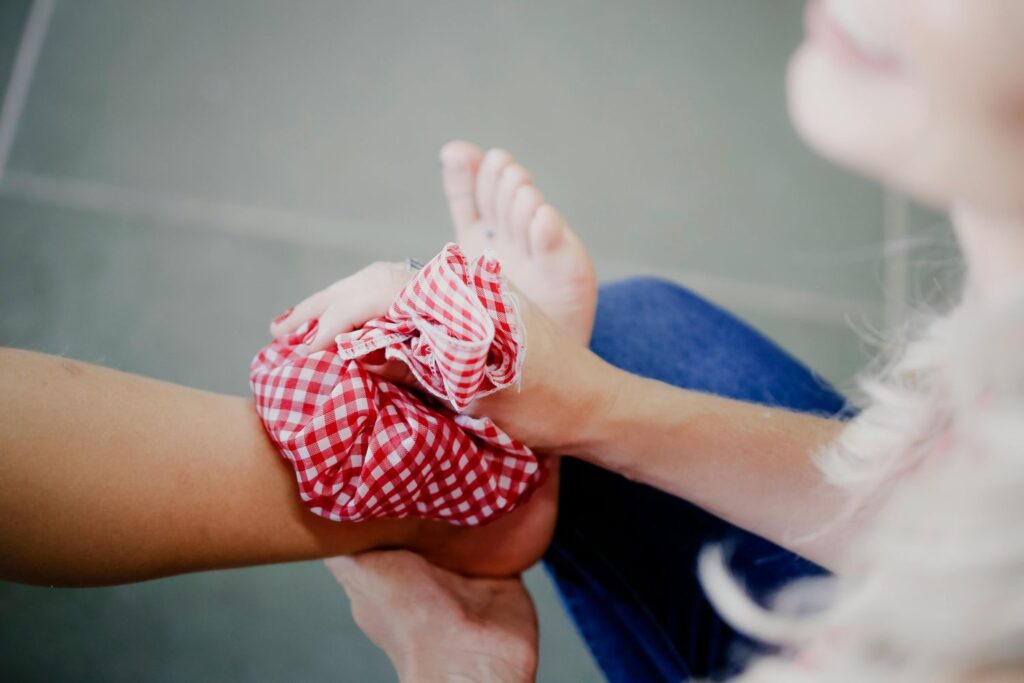Foot pain is one of those things that sneaks up on us. Maybe it starts as a slight twinge when you first get out of bed in the morning or a dull ache after a long day on your feet. Sometimes it goes away with a little rest, but other times it lingers, nagging you until walking, running, or even standing becomes uncomfortable. If you live in Turtle Hill Village and have been dealing with ongoing discomfort, you may be wondering: what actually causes foot pain, and what can be done about it?
The truth is, foot pain is incredibly common. With all the pressure our feet endure daily—carrying our body weight, supporting balance, absorbing shock, and keeping us mobile—it’s no wonder they sometimes protest. But not all foot pain is created equal. It can stem from something as simple as wearing shoes that don’t fit properly or as complex as underlying medical conditions.
In this article, we’ll explore the most common causes of foot pain, the risk factors that make it worse, and the steps you can take to prevent and treat it. Most importantly, we’ll talk about when it’s time to seek help from the experts at Vital Podiatry Foot and Ankle Specialist right here in Turtle Hill Village.
Understanding Foot Pain
Your feet are small compared to the rest of your body, but they’re surprisingly complex. Each foot is made up of 26 bones, 30 joints, and more than 100 muscles, tendons, and ligaments—all working together to keep you upright and moving. With so many moving parts, there are countless opportunities for things to go wrong.
Pain is the body’s way of signaling that something is off. Maybe you’ve strained a tendon, developed inflammation, or injured a bone. Sometimes it’s an obvious injury, but other times the pain creeps in from repetitive stress or changes in the way you walk.

Why Foot Pain Shouldn’t Be Ignored
It’s easy to dismiss foot pain as something minor. After all, most of us think, “It’s just my feet, they’ll get better.” But ignoring persistent pain is a mistake.
Your feet are literally the foundation of your body. If that foundation isn’t stable, the rest of your body feels it. Problems in the feet can cause a domino effect—leading to knee pain, hip pain, back pain, and even poor posture. Something as small as a bunion or a strained ligament can eventually make climbing stairs, playing with your kids, or even walking around Turtle Hill Village a challenge.
Common Causes of Foot Pain
There are dozens of reasons your feet might hurt, but here are some of the most common conditions people experience.
Plantar Fasciitis: The Heel Pain Culprit
Plantar fasciitis is one of the leading causes of heel pain. It occurs when the plantar fascia—a thick band of tissue running along the bottom of your foot—becomes irritated or inflamed.
Symptoms of Plantar Fasciitis
- Sharp heel pain, especially when you first step out of bed
- Pain that eases as you move but returns after sitting or resting
- Tenderness along the arch of the foot
If this sounds familiar, you’re not alone. Many Turtle Hill Village residents visit Vital Podiatry Foot and Ankle Specialist for relief from plantar fasciitis.
Bunions and Their Impact on Comfort
Bunions are bony bumps that form on the joint at the base of your big toe. While they’re often dismissed as a cosmetic issue, they can cause significant pain, swelling, and difficulty finding shoes that fit.
How Bunions Develop
- Genetic predisposition (they tend to run in families)
- Wearing shoes that are too tight or narrow
- Repeated stress or pressure on the joint
Left untreated, bunions can worsen over time, making walking painful and even altering the alignment of your other toes.
Flat Feet and Arch Problems
Flat feet occur when the arches of your feet collapse, causing the entire sole to touch the ground when you stand. This lack of support can put extra strain on the muscles and ligaments in your feet and legs.
Signs You May Have Flat Feet
- Frequent leg fatigue
- Pain in the arch or heel
- Difficulty standing on tiptoes
Flat feet can be present from childhood or develop later in life due to aging, obesity, or injury.
Arthritis in the Feet
Arthritis doesn’t just affect your hands or knees—it’s also a major source of foot pain. Over time, arthritis can damage the cartilage in your joints, making them stiff, swollen, and painful.
Types of Arthritis That Affect the Feet
- Osteoarthritis: Caused by wear and tear over time
- Rheumatoid arthritis: An autoimmune disease that attacks joint linings
- Gout: A buildup of uric acid crystals in the joints, often affecting the big toe
Tendonitis and Overuse Injuries
Repetitive motion, sports, or spending long hours on your feet can inflame the tendons in your foot. This condition, called tendonitis, often affects athletes, but anyone who overuses their feet is at risk.

Lifestyle Factors That Lead to Foot Pain
Sometimes foot pain isn’t caused by a medical condition but by our daily habits.
Poorly Fitted Shoes
Shoes that are too tight, too loose, or lack support are one of the biggest contributors to chronic foot pain. High heels, unsupportive flats, and worn-out sneakers all fall into this category.
Standing or Walking for Long Periods
If your job requires you to be on your feet all day, you’re more likely to experience fatigue, soreness, and even long-term foot problems.
Sports and High-Impact Activities
Running, basketball, soccer, and similar activities put repetitive stress on the feet. Without proper footwear, stretching, and recovery, this can lead to overuse injuries.
Medical Conditions Linked to Foot Pain
Certain health issues make foot pain more likely—or more severe.
Diabetes and Nerve Damage
Diabetes can cause neuropathy, a form of nerve damage that leads to tingling, burning, or numbness in the feet. It also increases the risk of infections and slow-healing wounds.
Circulation Issues
Poor blood flow can delay healing, increase swelling, and make feet more vulnerable to pain and injury.
Obesity and Extra Strain on the Feet
Carrying extra weight puts additional pressure on the feet, much like overloading a bridge. Over time, this added strain can damage joints, ligaments, and bones.
When to See a Specialist
Not all foot pain requires a trip to the doctor, but some symptoms are red flags.
Red Flags That Need Immediate Attention
- Severe or sudden pain that doesn’t go away
- Swelling, redness, or warmth that spreads
- Difficulty bearing weight on your foot
- Numbness, tingling, or loss of sensation
Why Choose Vital Podiatry Foot and Ankle Specialist in Turtle Hill Village
If you’ve been dealing with stubborn foot pain, it’s time to get expert help. Vital Podiatry Foot and Ankle Specialist in Turtle Hill Village offers comprehensive foot and ankle care tailored to your needs. From diagnostic imaging to advanced treatment options, their team provides the specialized attention you need to find lasting relief.
Preventing Foot Pain
Prevention is always easier than treatment. Here’s how you can keep your feet healthy.
Choosing the Right Footwear
- Look for shoes with arch support and cushioning
- Avoid high heels or unsupportive flats for everyday use
- Replace shoes once they’re worn out
Stretching and Strengthening Exercises
Simple stretches and exercises can make a big difference:
- Calf stretches to reduce heel strain
- Toe curls to strengthen foot muscles
- Rolling a ball under your foot for flexibility
Healthy Lifestyle Habits
Maintaining a healthy weight, eating a nutrient-rich diet, and staying active all support long-term foot health.
Treatment Options Available
At-Home Remedies
- Rest and ice to reduce swelling
- Over-the-counter pain relievers
- Elevation to decrease inflammation
Professional Treatments from Vital Podiatry Foot and Ankle Specialist
- Custom orthotics: Shoe inserts designed for your unique feet
- Physical therapy: Targeted exercises to strengthen and restore movement
- Advanced treatments: Injections, laser therapy, or minimally invasive surgery if needed
Living Pain-Free in Turtle Hill Village
Imagine strolling through Turtle Hill Village, running errands, or simply enjoying a walk in the neighborhood—without pain holding you back. By understanding the causes of foot pain and working with trusted experts like Vital Podiatry Foot and Ankle Specialist, you can take control of your health and return to an active, pain-free lifestyle.
Vital Podiatry Foot and Ankle Specialist Serving the Turtle Hill Village Community and Beyond in Houston
Vital Podiatry Foot and Ankle Specialist is dedicated to serving the diverse needs of the local community of Houston, including individuals residing in neighborhoods like Turtle Hill Village. With its convenient location near landmarks such as Turtle Lake and major intersections like Cougar Rd. and Falcon Rd. (coordinates: 29.9365690099684, -95.56708388921547), we offer urgent care for foot pain Houston services.
Get Urgent Care For Foot Pain Services At Turtle Hill Village Now
CALL US NOW!
(281) 937-4546
Navigate from Turtle Hill Village to Vital Podiatry Foot and Ankle Specialist Now
Conclusion
Foot pain isn’t something to ignore. Whether it’s caused by plantar fasciitis, bunions, arthritis, flat feet, or simply the wrong shoes, it can interfere with every part of your daily life. Fortunately, solutions exist—and the first step is recognizing when you need help.
If you’re in Turtle Hill Village and struggling with foot pain, don’t let it control your life. Reach out to Vital Podiatry Foot and Ankle Specialist for expert care tailored to your needs. With the right treatment, you’ll be back on your feet—literally—living life the way you want.
FAQs
1. What’s the most common cause of foot pain?
Plantar fasciitis is one of the top causes, especially for heel pain, but bunions, arthritis, and flat feet are also frequent culprits.
2. Can foot pain go away on its own?
Sometimes mild pain resolves with rest, but persistent or severe pain usually requires professional care.
3. How do I know if my foot pain is serious?
If pain is constant, affects your ability to walk, or comes with swelling, redness, or numbness, it’s best to see a specialist.
4. What kind of shoes are best for preventing foot pain?
Supportive shoes with cushioning and proper arch support are ideal. Avoid tight, high-heeled, or worn-out footwear.
5. Can exercise help reduce foot pain?
Yes! Stretching and strengthening exercises can improve flexibility and reduce strain on your feet.










